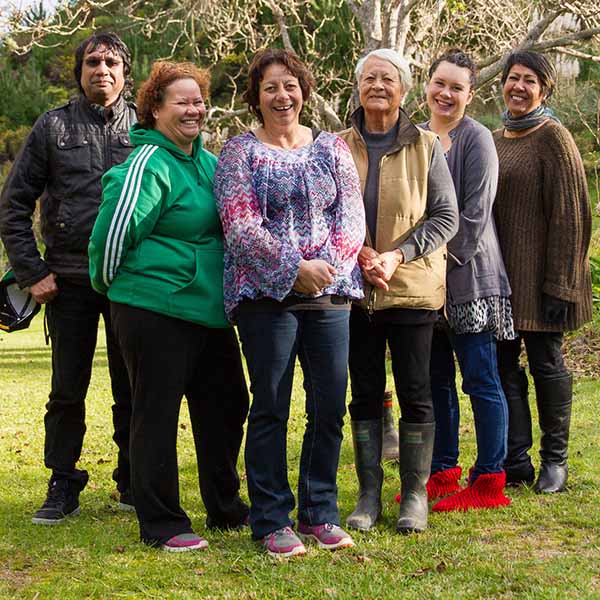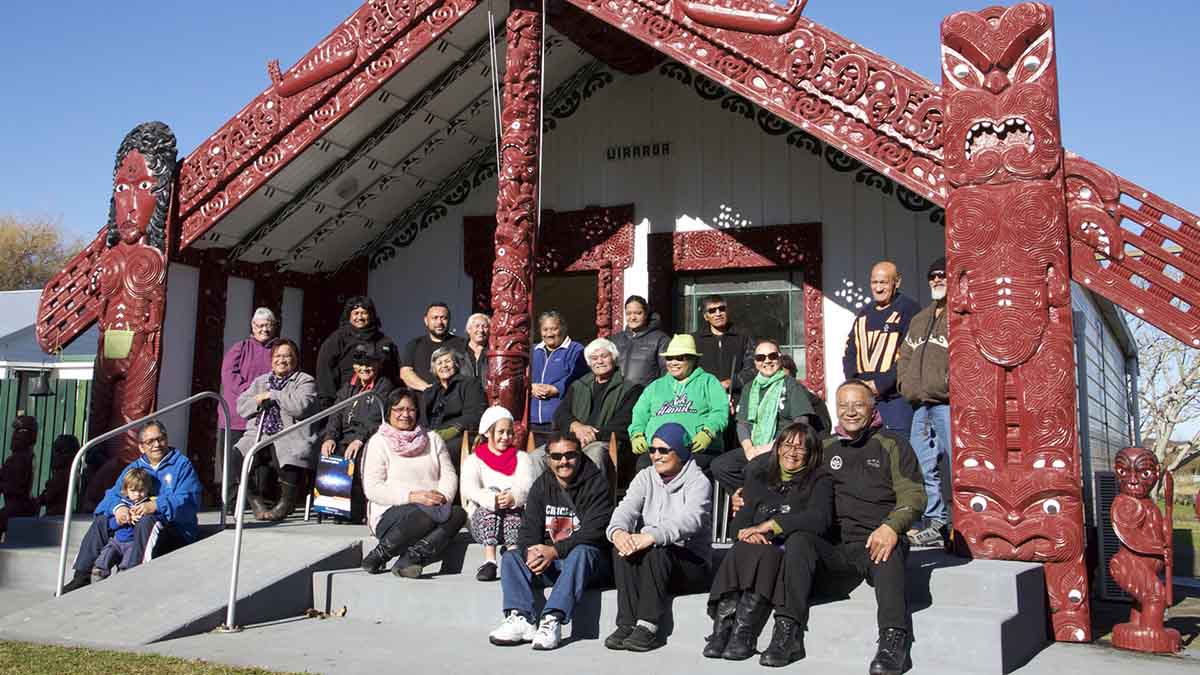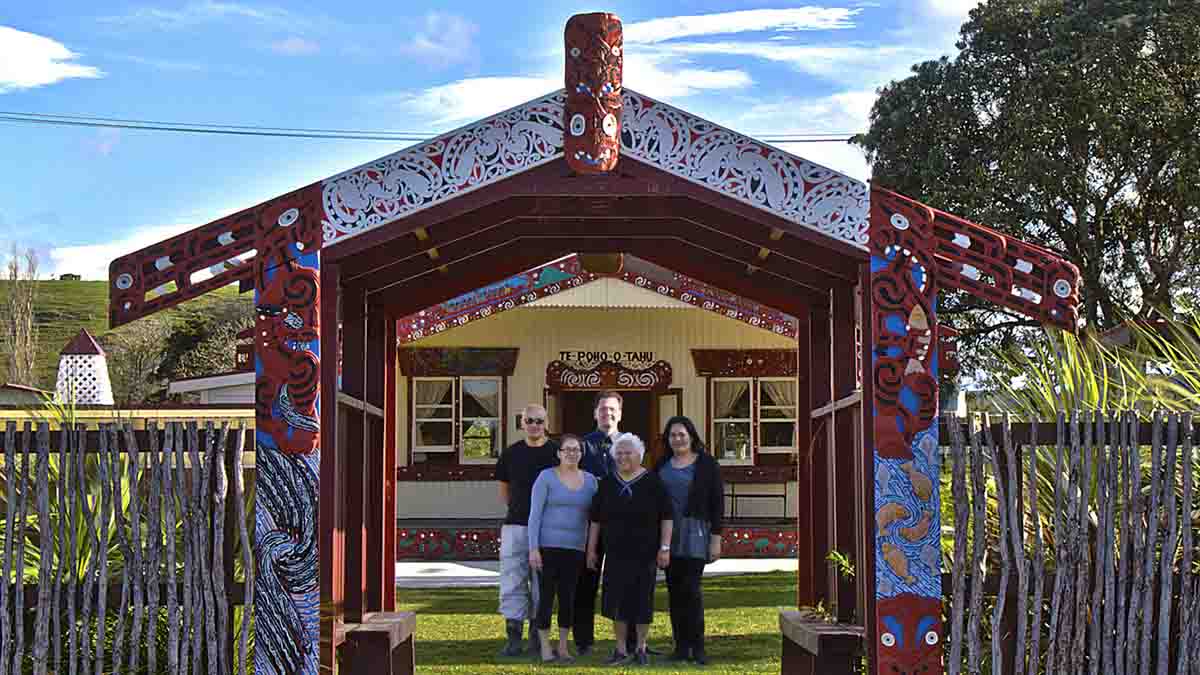“Life is for learning and learning is for life” – this is the maxim by which Isabella Urlich and her whānau live their lives.
Born in 1938 this Ngāti Kawau kuia, along with her parents and grandfather, raised eight children in the coastal settlement of Te Touwai on the shores of the Whangaroa Harbour, ensuring that the remote location was never a barrier to education.
Four generations of the whānau nurture strong ties with their marae, Karangahape, and are involved as teachers or students of marae-centred education programmes run by Te Whare Wānanga o Awanuiārangi.
The importance of education was instilled in Isabella as a child. However, no Māori was spoken in her home, despite the fact that her parents were both fluent speakers of te reo.
“My grandfather was from Dalmatia and Croatian was spoken in our home. My childhood was wonderful – I was very loved and protected – but we never heard any Māori stories. My storybook was the Hansard Report – the minutes of parliamentary sessions. My father read those to me in the voices of all the different ministers. I knew all the ministers’ portfolios by the time I attended school. At Te Touwai Native School I witnessed the caning of students for speaking Māori; a permanent supply of supplejack stood in the corner. But I loved school life – I had developed a love of learning since birth and school was another learning environment.”
Isabella believes education has uplifted every generation of her whānau.
“Education has provided many opportunities for my family and for our people. It is the great machine to personal development. Education and economics are inextricably intertwined. The relationship between Karangahape Marae and Awanuiārangi has opened up a great world of knowledge for the people who participate in the wānanga here. Knowing who you are and why you are where you are gives one that strong sense of identity and belonging. It is a taonga for the people and they are eager learners.
“Our urban people, many of whom have become disconnected from their Māoritanga, travel from Auckland to every wānanga with a deep desire to know who they are. They are excited by the retrieval of their identity. They eagerly attend these wānanga and encourage their parents and whānau whanui to participate.”
Hugh says the opportunity for an education in mātauranga Māori “is everything”.
“When you live in a Māori community you have to be able to fulfil your obligations on the marae.”
Isabella adds that whānau support is key.
“The benefit I received from the support and encouragement that my parents and my grandfather gave me has naturally transferred to my children, grandchildren and great grandchildren. My children experienced positive role-modelling – it was expected that they would continue similarly.”
Isabella offers her experience to Karangahape Marae on Awanuiārangi programmes. Daughter Liarne assists with instructing in Te Pouhono programmes (designed to revitalise te reo, kawa, āhuatanga Māori and tikanga Māori), Customary Fishing and Te Wai Māori (Freshwater Fishing/environment), and, with the support of kaumatua and kuia, she is also the tumuaki of the Kōhanga Reo.
Liarne and Hugh are both graduates of the Bachelor of Mātauranga Māori. Sherene, Liarne’s daughter, is in her first year of the Bachelor of Education. Other family members who also work in the field of education include Verne, who has a Diploma of Teaching in E.C.E, a Bachelor of Education and a Master of Arts in Education, and Vervies, who has a Bachelor of Education.
“In mum’s generation many Māori had negative schooling experiences,” Verne says. “Their children and their children’s children inherited the barriers that came with those experiences. However, our mother had positive educational experiences – she was and continues to be the role model for us all. It’s been a domino effect and we all share the benefits of our experiences and our knowledge with each other.”
Says Liarne: “It only takes one person to step up and set the example. It creates a ripple effect. My daughter and my grand children are witnesses of my example – they see their whānau engaged in learning so they know education is an option available for them to pursue. Education gives each of us the ability to provide a future for ourselves, our children and our mokopuna. There is an old adage that apples don’t fall far from the tree; for our whānau this is true.”
Karangahape Marae has participated in Te Whare Wānanga o Awanuiārangi programmes since 2006. In 2013, the marae was presented with a special award for Contribution to Iwi Development and Advancement.

Kimihia he huarahi ako
What can you study?

